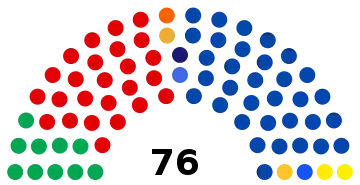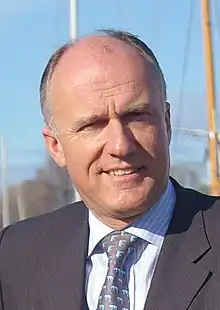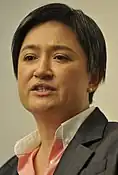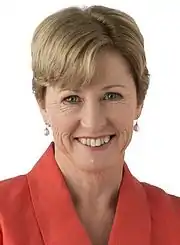| ||||||||||||||||||||||||||||||||||||||||||||||||||||||||||||||||||||||||||||||||||||||||||||||||||||||||||||||||||||||||||||||||||||||
40 of the 76 seats in the Australian Senate 39 seats needed for a majority | ||||||||||||||||||||||||||||||||||||||||||||||||||||||||||||||||||||||||||||||||||||||||||||||||||||||||||||||||||||||||||||||||||||||
|---|---|---|---|---|---|---|---|---|---|---|---|---|---|---|---|---|---|---|---|---|---|---|---|---|---|---|---|---|---|---|---|---|---|---|---|---|---|---|---|---|---|---|---|---|---|---|---|---|---|---|---|---|---|---|---|---|---|---|---|---|---|---|---|---|---|---|---|---|---|---|---|---|---|---|---|---|---|---|---|---|---|---|---|---|---|---|---|---|---|---|---|---|---|---|---|---|---|---|---|---|---|---|---|---|---|---|---|---|---|---|---|---|---|---|---|---|---|---|---|---|---|---|---|---|---|---|---|---|---|---|---|---|---|---|
| ||||||||||||||||||||||||||||||||||||||||||||||||||||||||||||||||||||||||||||||||||||||||||||||||||||||||||||||||||||||||||||||||||||||
 Senators elected in the 2013 federal election and the WA special election | ||||||||||||||||||||||||||||||||||||||||||||||||||||||||||||||||||||||||||||||||||||||||||||||||||||||||||||||||||||||||||||||||||||||
| ||||||||||||||||||||||||||||||||||||||||||||||||||||||||||||||||||||||||||||||||||||||||||||||||||||||||||||||||||||||||||||||||||||||
2013 Australian federal election |
|---|
| National results |
| State and territory results |
|
|
The following tables show state-by-state results in the Australian Senate at the 2013 Australian federal election.
Following a dispute of the results, the Western Australian results were declared void. The Western Australian senators were elected at the 2014 special election in Western Australia.
New senators took their places from 1 July 2014. This gave a Senate with the Coalition government on 33 seats, the Australian Labor Party opposition on 25 seats, and a record crossbench of 18: ten Australian Greens, three Palmer United, and single seats to David Leyonhjelm of the Liberal Democratic Party, Bob Day of the Family First Party, Ricky Muir of the Australian Motoring Enthusiast Party, John Madigan of the Democratic Labour Party and Nick Xenophon.[1][2]
Australia
This table includes votes and percentage from the 2013 election and the seat allocation is based on the void election in Western Australia. The 2014 Australian Senate special election in Western Australia includes the revised national totals after that election.
 | ||||||||
|---|---|---|---|---|---|---|---|---|
| Party | Votes | % | Swing | Seats won | Total seats | Change | ||
| Liberal/National joint ticket [lower-alpha 3] | 3,938,204 | 29.36 | –0.04 | 8 | 16 | |||
| Liberal [lower-alpha 4] | 1,006,710 | 7.51 | +1.08 | 8 | 16 | |||
| National [lower-alpha 5] | 69,523 | 0.52 | –0.19 | 0 | 0 | |||
| Country Liberal (NT) | 42,781 | 0.32 | –0.01 | 1 | 1 | |||
| Coalition total | 5,057,218 | 37.70 | –0.92 | 17 | 33 | |||
| Labor | 4,038,591 | 30.11 | –5.02 | 12 | 25 | |||
| Greens | 1,159,588 | 8.65 | –4.46 | 4 | 10 | |||
| Palmer United | 658,976 | 4.91 | +4.91 | 2 | 2 | |||
| Liberal Democratic Party | 523,831 | 3.91 | +2.10 | 1 | 1 | |||
| Xenophon Group | 258,376 | 1.93 | +1.93 | 1 | 1 | |||
| Family First | 149,306 | 1.11 | –0.99 | 1 | 1 | |||
| Motoring Enthusiasts | 67,560 | 0.50 | +0.50 | 1 | 1 | |||
| Total | 13,413,016 | 40 | 76 | |||||
| Invalid/blank votes | 409,149 | 2.96 | –0.79 | |||||
| Registered voters/turnout | 14,086,869 | 93.71 | ||||||
| Source: Commonwealth Election 2013 | ||||||||
The Senate has 76 seats. Forty seats were up for election; six in each of the six states, two for the ACT and two for the Northern Territory. The terms of the four senators from the territories commenced on election day. The terms of the six longest-serving state senators ended on 30 June 2014; the terms of the new state senators commenced on 1 July 2014, and were originally supposed to end on 30 June 2020—however, the entire Senate was dissolved at the double-dissolution 2016 election.[5][6]
The Senate saw the Coalition government on 33 seats with the Labor opposition on 25 seats, the Greens on 10 seats and a crossbench of eight—Palmer United on three seats, with other minor parties and independents on five seats (the LDP's David Leyonhjelm, Family First's Bob Day, Motoring's Ricky Muir and incumbents Nick Xenophon and the DLP's John Madigan). Muir announced he would vote in line with Palmer United.[7] The initial election saw Wayne Dropulich of the Australian Sports Party win a seat in Western Australia, but the subsequent voiding of the result and ensuing special election saw the Palmer United Party gain a third seat. The Coalition government required the support of at least six non-coalition senators to pass legislation.
A record number of candidates stood at the election.[8] Group voting tickets came under scrutiny because multiple candidates were provisionally elected with the vast majority of their 14.3 per cent quotas coming from the preferences of other parties across the political spectrum. "Preference whisperer" Glenn Druery organised tight cross-preferencing between over 30 minor parties as part of his Minor Party Alliance.[9][10][11] Sports' Wayne Dropulich won a Senate seat on a record-low primary vote of 0.2 per cent in Western Australia, his party placing 21st out of 28 groups on primary votes.[12][13][14] Motoring's Ricky Muir won a senate seat on a record-low primary vote of 0.5 per cent in Victoria.[15][16] Family First's Bob Day won a seat on a primary vote of 3.8 per cent in South Australia.[16][17] All three were involved with the Minor Party Alliance.[18] Previous examples of winning with low vote shares include Family First's Steve Fielding in 2004 on 1.9 per cent in Victoria,[19] the Nuclear Disarmament Party's Robert Wood in 1987 on 1.5 per cent in New South Wales, and the DLP's John Madigan won his seat in 2010 on a primary vote of 2.3 per cent in Victoria.[20] Xenophon and larger parties including the incoming government announced they would look at changes to the GVT system.[21][22][23]
New South Wales
|
| ||||||||||||||||||||||||||||||||||||||||||||||||||||||||||||||||||||||||||||||||||||||||||||||||||||||||||||||||||||||||||||||||||||||||||||||||||||||||||||||||||||||||||||||||||||||||||||||||||||||||||||||||||||||||||||||||||||||||||||||||||||||||||||||||||||||||||||||||||||||||||||||||||||||||||||||||||||||||||||||||||||||||||||||||||||||||||||||||||||||||||||||||||||||||||||||||||||
Victoria
|
| ||||||||||||||||||||||||||||||||||||||||||||||||||||||||||||||||||||||||||||||||||||||||||||||||||||||||||||||||||||||||||||||||||||||||||||||||||||||||||||||||||||||||||||||||||||||||||||||||||||||||||||||||||||||||||||||||||||||||||||||||||||||||||||||||||||||||||||||||||||||||||||||||||||||||||||||||||||||||||||||||||||||||||||||||||||||||||
Queensland
|
| ||||||||||||||||||||||||||||||||||||||||||||||||||||||||||||||||||||||||||||||||||||||||||||||||||||||||||||||||||||||||||||||||||||||||||||||||||||||||||||||||||||||||||||||||||||||||||||||||||||||||||||||||||||||||||||||||||||||||||||||||||||||||||||||||||||||||||||||||||||||||||||||||||||||||||||||||||||||||||||
Western Australia
|
| ||||||||||||||||||||||||||||||||||||||||||||||||||||||||||||||||||||||||||||||||||||||||||||||||||||||||||||||||||||||||||||||||||||||||||||||||||||||||||||||||||||||||||||||||||||||||||||||||||||||||||||||||||||||||||||||||||||||||||||||||||||||||||||||||||||||||||||
South Australia
|
| ||||||||||||||||||||||||||||||||||||||||||||||||||||||||||||||||||||||||||||||||||||||||||||||||||||||||||||||||||||||||||||||||||||||||||||||||||||||||||||||||||||||||||||||||||||||||||||||||||||||||||||||||||||||||||||||||||||||||||||||||||||||||||||||||||||||||||||||||||||||||||||||||||||||||||||||||||||||
Tasmania
|
| ||||||||||||||||||||||||||||||||||||||||||||||||||||||||||||||||||||||||||||||||||||||||||||||||||||||||||||||||||||||||||||||||||||||||||||||||||||||||||||||||||||||||||||||||||||||||||||||||||||||||||||||||||||||||||||||||||||||||||||||||||||
Territories
Australian Capital Territory
|
| |||||||||||||||||||||||||||||||||||||||||||||||||||||||||||||||||||||||||||||||||||||||||||||||||||||||||||||||||||||||||||||||||
Northern Territory
|
| |||||||||||||||||||||||||||||||||||||||||||||||||||||||||||||||||||||||||||||||||||||||||||||||||||||||||||||||||||||
See also
Notes
- ↑ Abetz became the Leader of the Government in the Senate, whereas the leader of the Coalition in the Australian House of Representatives was Tony Abbott.
- ↑ Wong became the Leader of the Opposition in the Senate, whereas the leader of the Labor Party in the Australian House of Representatives was Kevin Rudd.
- ↑ The Liberal and National parties ran a joint ticket in New South Wales and Victoria. It includes the Liberal National Party in Queensland.
- ↑ The Liberals-only ticket ran in Western Australia, South Australia, Tasmania and the Australian Capital Territory.
- ↑ The Nationals-only ticket ran in Western Australia and South Australia.
References
- ↑ 2013 election Senate results by vote: AEC
- ↑ "2013 election Senate results by seat: ABC". Australian Broadcasting Corporation.
- ↑ "First Preferences by Group". Virtual Tally Room: 2013 election. AEC. 1 November 2013. Retrieved 3 December 2013.
- ↑ "Senate Results: Summary". ABC. 2013. Retrieved 13 November 2013.
- ↑ Commonwealth of Australia Constitution Act, Section 13. Retrieved 6 September 2010.
- ↑ Senate (Representation of Territories) Act 1973, Section 6. Retrieved August 2010.
- ↑ "Australian Motoring Enthusiast Party Consolidates Support" (Press release). Australian Motoring Enthusiast Party. 10 October 2013. Archived from the original on 2 November 2013. Retrieved 13 November 2013.
- ↑ Green, Antony (16 August 2013). "Record Number of Candidates to Contest 2013 Election". ABC News. Retrieved 13 November 2013.
- ↑ Bormann, Trevor (5 September 2013). "Bitter dispute erupts over Senate preferences in Queensland: ABC 5 September 2013". Abc.net.au. Retrieved 19 March 2018.
- ↑ "Glen Druery – the 'preference whisperer': ABC 21 August 2013". Archived from the original on 2 October 2013. Retrieved 29 September 2013.
- ↑ Bridie Jabour (13 September 2013). "'Preference whisperer' defends role in minor parties' Senate success: The Guardian 13 September 2013". The Guardian. Retrieved 19 March 2018.
- ↑ "Western Australia 2013 Senate results and preference flows". ABC. Retrieved 19 March 2018.
- ↑ Green, Antony (13 September 2013). "The Preference Deals behind the Strange Election of Ricky Muir and Wayne Dropulich". ABC News. Retrieved 13 November 2013.
- ↑ "Australian Sports Party 'pleasantly surprised' by potential Senate seat: ABC 9 September 2013". Abc.net.au. 9 September 2013. Retrieved 19 March 2018.
- ↑ "Victorian 2013 Senate results and preference flows". ABC. Retrieved 19 March 2018.
- 1 2 "Motoring Enthusiasts Party member Ricky Muir wins Senate seat: ABC 1 October 2013". Abc.net.au. 1 October 2013. Retrieved 19 March 2018.
- ↑ "South Australia 2013 Senate results and preference flows". ABC. Retrieved 19 March 2018.
- ↑ "Micro-manager behind independents: SMH 10 September 2013". Sydney Morning Herald. 10 September 2013. Retrieved 19 March 2018.
- ↑ "A ballot crammed with choice: SMH Tim Colebatch 5 August 2013". Sydney Morning Herald. 5 August 2013. Retrieved 19 March 2018.
- ↑ "Single-issue groups set to take balance of power: Canberra Times 9 September 2013". Canberratimes.com.au. 9 September 2013. Retrieved 19 March 2018.
- ↑ "Coalition shy of Senate majority: Business Spectator 9 September 2013". Businessspectator.com.au. Retrieved 19 March 2018.
- ↑ "Tony Abbott fires a warning shot at micro parties in the Senate". Watoday.com.au. 9 September 2013. Retrieved 19 March 2018.
- ↑ "Xenophon wants voting reform: NineMSN 9 September 2013". Archived from the original on 17 January 2014. Retrieved 9 September 2013.




.png.webp)
.jpg.webp)
_(cropped).jpg.webp)